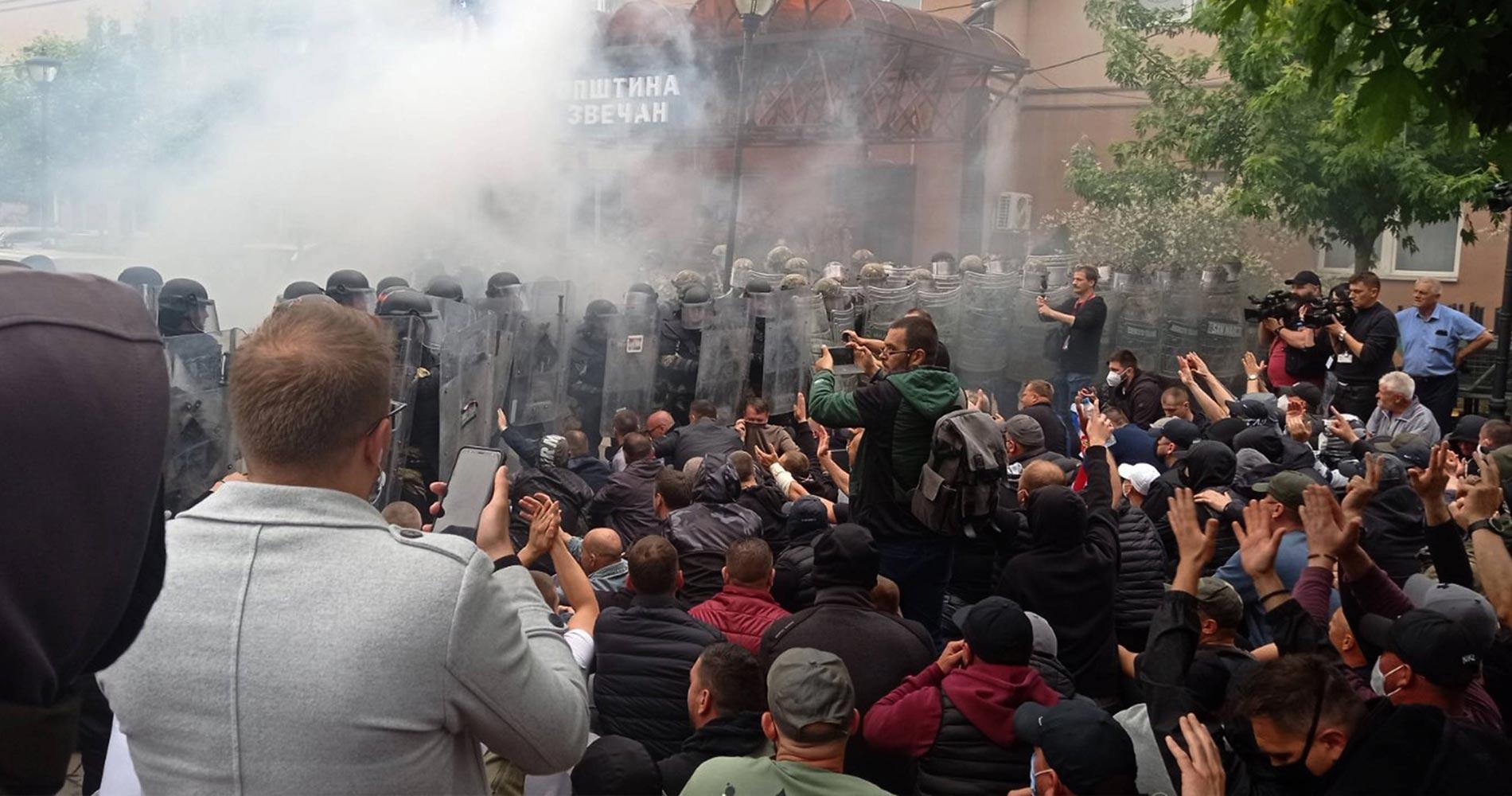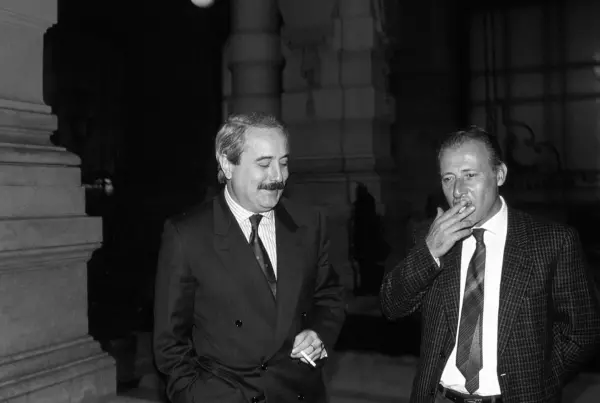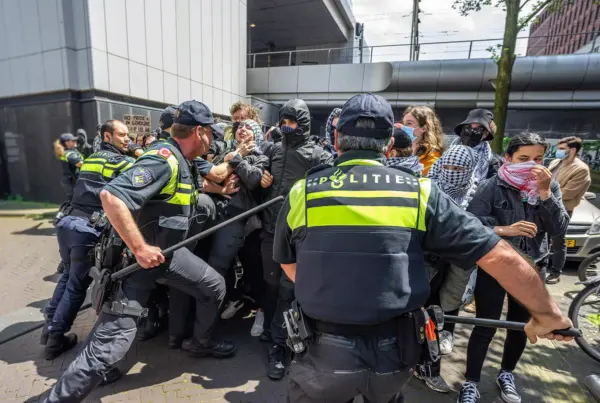In May 2023 violent riots between Kosovo law enforcement authorities and Kosovo Serbs in Northern Kosovo broke out. Kosovo-Serbian relations deteriorated again to a new low and the intensive efforts by the EU aimed at normalizing relations between Kosovo and Serbia were undermined. Now China and Russia are competing with the EU for geostrategic influence in the Western Balkans. Will the EU be able to maintain its position as a credible “external actor” in the Western Balkans?
Bernd Christoph Ströhm, 1 August 2023
German version | Russian version
In March 2023 the EU rejoiced after bilateral relations between Kosovo and Serbia reached a new high. The EU High Representative for Foreign Affairs, Josep Borrell, euphorically announced that Kosovo and Serbia had agreed on implementing the EU brokered “agreement on the path to normalisation of relations”, also informally known as the “Ohrid Agreement”. Even US Secretary of State, Antony Blinken, stated that the US administration was proud of its contribution to the agreement.
According to the terms of this agreement Serbia pledged not to veto Kosovo’s entry into international organizations and in return, the Kosovo government pledged to establish a “Community of Serb Municipalities” (CSM), a political association of ethnic Serb majority municipalities in Kosovo. The agreement was aimed at achieving a comprehensive normalisation of relations between Kosovo and Serbia through Serbia’s recognition of Kosovo’s de facto but not de jure independence.
Nevertheless, only three months later, Kosovo-Serbian relations deteriorated again to a new low, following the outbreak of violent riots between Kosovo law enforcement authorities and Kosovo Serbs in Northern Kosovo on 26 and 29 May. The Kosovo Serb community launched protest rallies in May to denounce the inauguration of ethnic Albanian candidates as mayors in Serb-majority municipalities, claiming that the April municipal elections were illegitimate due to the low participation rate of 3%, following the decision of the local ethnic Serb party “Srpska Lista” to boycott the elections. The international community observed those riots with great concern, since they resulted in violent brawls that left some 30 soldiers of the NATO-led international Kosovo peacekeeping force (KFOR) and 50 civilians injured.
The reason for those protests is deeply rooted in ethnic tensions between Kosovo Albanians and Kosovo Serbs in Serb-majority Kosovo municipalities. Because of these tensions, the international community suggested holding new municipal elections in Northern Kosovo and called on Kosovo Serb officials to participate in these elections to prevent a further escalation of the situation. The Kosovo government presented a plan in June, aimed at defusing tensions in Serb-majority municipalities by facilitating such snap elections and by downsizing the presence of Kosovo police troops stationed at municipal buildings across Northern Kosovo.
After the arrest of three Kosovo police officers by Serbian security forces in June 2023, bilateral relations between Kosovo and Serbia deteriorated even further. Kosovo Prime Minister Kurti denounced the arrests as “kidnapping”, adding that the police officers were arrested on the territory of Kosovo near the border with Serbia. The Serbian government claimed that the Kosovo police officers were arrested after illegally entering Serbian territory, armed with firearms. Due to the incident, the Kosovo government decided to temporarily ban all vehicles with Serbian license plates from entering the country as of 14 June 2023. Bilateral tensions between Kosovo and Serbia were diffused following Serbia’s decision to release the three detained Kosovo police officers end of June.
Due to the escalation of ethnic and political tensions in Northern Kosovo, the Ohrid Agreement’s proper implementation is highly unlikely. Neither the Kosovo, nor the Serbian government is truly willing to normalise Kosovo-Serbian bilateral relations. The opposite is true especially for Serbia, which is using the Kosovo issue to distract from domestic political problems. Since May 2023, the Serbian government has been confronted with weekly large-scale anti-government protest rallies across Serbia. Already in April 2023 Serbia’s commitment to implement the EU-negotiated agreement had been questioned, after the Serbian government decided to vote against Kosovo’s membership to the Council of Europe (CoE).
The US and EU held Kosovo’s Prime Minister Kurti responsible for the political and ethnic tensions in Northern Kosovo which led to the imposition of EU political and economic sanctions on Kosovo. Those sanctions could result in the loss of over EUR 500 million in EU funds by the end of 2023 (according to the “Alliance of Kosovar Businesses”), and the postponement of the deadline for Kosovo’s EU visa liberalisation beyond January 2024.
While the EU uses sanctions to bring Kosovo in line, it remains quite uncritical of the Serbian government. This stance towards Serbia is aimed at drawing Serbia away from Russia and towards the EU’s foreign policy stance towards Russia including its Russian sanctions-regime.
One worrying trend which has appeared in Serbia as a result of the EU’s actions aimed at deescalating tensions in Northern Kosovo is the persistence of EU-scepticism. As of today, there is no majority in favour of joining the EU in Serbia. If a referendum was to be held, a Demostat public opinion poll from June 2023 showed that only 34% of Serbs would support Serbia’s EU accession. Kosovo, on the other hand, cannot rely on the support of certain EU member states (most notably Spain, Slovakia, Cyprus, Romania, and Greece, who do not recognise Kosovo’s independence) when it comes to its own ambition of joining the EU. Hence, the EU has lost its trump card of an EU accession prospect, to convince both governments to make compromises aimed at normalising Kosovo-Serbian relations.
By now it is no secret that the initial enthusiasm for reform in the Western Balkans almost evaporated since the EU-Western Balkans Summit in Thessaloniki in 2003, during which the EU pledged to facilitate the EU integration of Western Balkan countries. At the same time, geostrategic competition for influence in the Western Balkans is growing, with other external actors, such as Russia, China and Turkey, expanding their presence in the region while using political and economic leverage to strengthen their position vis-à-vis the EU.
While the EU cannot be replaced as broker between these countries, it must become a more credible external actor in order to promote stability and the rule of law in the Western Balkan region. The prospect of EU integration and accession must become more tangible. In order to re-emerge as a credible mediator in the region the EU must set clear goals and offer clear rewards in view of EU accession.







